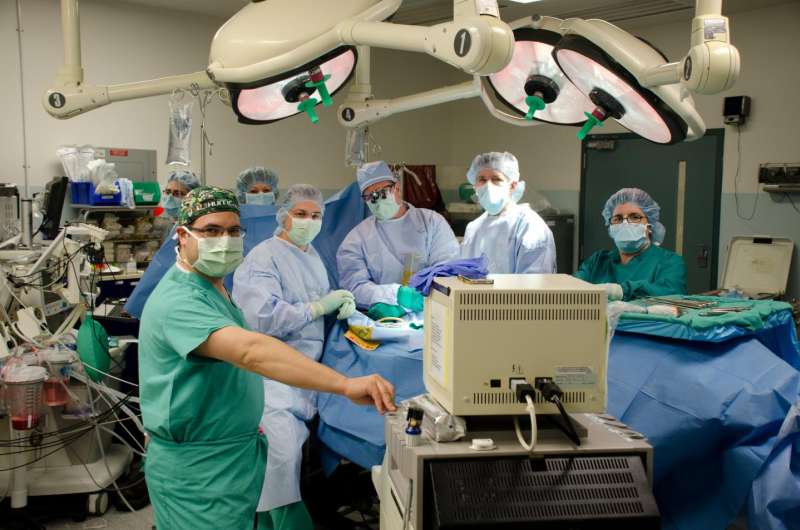University of Miami's Miami project successfully completes SCI clinical trial

The Miami Project to Cure Paralysis, at the University of Miami Miller School of Medicine, today announced the publication of its first Food and Drug Administration (FDA) approved Phase I clinical trial involving human nerve cells used to repair the damaged spinal cord, in the February issue of the Journal of Neurotrauma. The cells, known as Schwann cells, are essential for the repair of nerve damage, and long thought to be able to increase recovery after spinal cord injury. The trial, performed at University of Miami / Jackson Memorial Hospital in Miami, is the first in a series designed to evaluate the safety and feasibility of transplanting autologous human Schwann cells to treat individuals with spinal cord injuries.
The trial enrolled subjects with the least chance of natural recovery in order to firstly establish the safety of the cell transplant procedure; specifically, it targeted people with new SCI, less than 30 days after injury, having sustained a trauma-induced lesion between thoracic levels T3-T11 and who were neurologically complete. This was a dose escalation treatment trial testing 3 different doses: 5 million, 10 million, and 15 million Schwann cells. There were a total of 39 people screened for eligibility, 9 were enrolled, and 6 participants were transplanted. The first two participants received the 5 million cell dose, the second two received the 10 million cell dose, and the final two received the 15 million cell dose. Because the Schwann cells, which reside in peripheral nerves, are obtained from a nerve biopsy from each participant, there is reduced concern of immune rejection and immunosuppressant medication is not required. Demonstrating the feasibility of a program involving an autologous cell therapy is critical, given the reduced risk associated with autologous versus allogeneic "off-the-shelf" cell products. Once the cells are removed from the participant, they have to be handled in accordance with current Good Manufacturing Practices (GMP). Because the cells are eventually injected into the spinal cord, this process is required to ensure that the cells are prepared consistently and without contaminants. Each participant was followed intensively for one year after receiving the transplantation surgery, and their neurologic status, medical status, pain symptoms, and muscle spasticity were evaluated. All participants will continue to be monitored for a total of five years after the transplantation.
Subjects enrolled came from both South Florida, the Caribbean, and Latin America reflecting the importance of Miami as a hub for medical advances in these regions. The enrolled subjects did not experience any severe complications as a result of the therapy or the surgery and one subject recovered sufficient neurological function to be classified as incomplete, whereas upon trial entry, he had complete injury. The clinical trial used advanced cell culture methods, expert surgery, and a strong complement of evaluation techniques to study the impact of the cell transplantation. Importantly, the trial successfully determined safety and feasibility for performing a peripheral nerve harvest within 5-30 days of injury followed by an intra-spinal transplantation of autologous cells within 4-7 weeks of injury, even in individuals having sustained severe spinal injury.
This first trial, using cells grown from the subject's own nerves is an important validation of decades of prior work and animal studies. Scientific reviewers commented that "This is a very carefully executed study and the authors are leading the field as the first non-commercial, i.e. purely academic group, in North America to develop a cell preparation for SCI transplantation and to execute on a cell transplantation trial in humans". It is a key milestone for The Miami Project's integrated program that studies spinal cord injury from multiple perspectives. Having now established the safety of Schwann cell transplantation in this initial group of subjects, it will be possible to combine other exciting therapies to amplify neurological recovery.
More information: Kimberly D Anderson et al, Safety of Autologous Human Schwann Cell Transplantation in Subacute Thoracic Spinal Cord Injury, Journal of Neurotrauma (2017). DOI: 10.1089/neu.2016.4895













